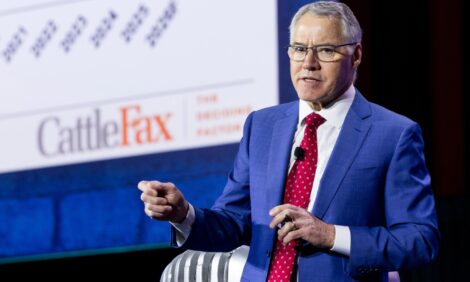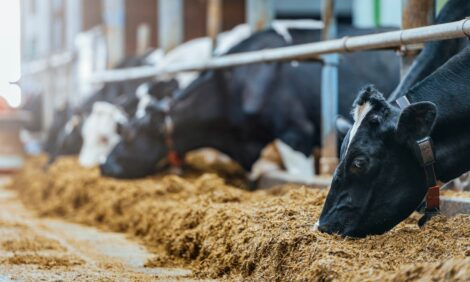



Biden Administration blames meat processors for soaring US meat prices; Tyson rejects notion
The Biden administration plans to take a tougher stance toward meatpacking companies it says are causing sticker shock at grocery stores. However, Tyson responded quickly to reject the conclusions drawn by the White House and the Secretary of Agriculture.Reuters reports that four companies control much of the U.S. meat processing market, and top aides to President Joe Biden blamed those companies for rising food prices in a blog on Wednesday.
As part of a set of initiatives, the administration will funnel $1.4 billion in COVID-19 pandemic stimulus money to small meat producers and workers, administration aides said in the blog post. They also promised action to "crack down on illegal price fixing," White House aides said in the blog post.
Four companies slaughtered about 85% of U.S. grain-fattened cattle that are made into steaks, beef roasts and other cuts of meat for consumers in 2018, according to the most recent data from the U.S. Department of Agriculture (USDA).
The big four processors in the U.S. beef sector are:
- Cargill, a global commodity trader based in Minnesota
- Tyson Foods Inc, the chicken producer that is the biggest U.S. meat company by sales
- Brazil-based JBS SA, the world's biggest meatpacker
- National Beef Packing Co , which is controlled by Brazilian beef producer Marfrig Global Foods SA
Price increases in beef, pork and poultry have driven half of the increased prices Americans have paid for food they eat at home since December, the White House said. And the administration sees those companies collecting too much profit after the stimulus helped prop up demand for their products.
"We've helped sustain this market, and it's frustrating to see these companies turn around and raise prices," Bharat Ramamurti, the deputy director of the White House's National Economic Council, said in an interview. "What we see here smacks of pandemic profiteering and that is the behavior the administration finds concerning."
Rising inflation has posed a serious threat to Biden's efforts to get a grip on the COVID-19 pandemic - his top priority as president - and engineer an economic recovery from the recession it caused.
The Biden administration has responded to these issues partly by ramping up efforts to crack down on what it sees as anticompetitive and monopolistic behavior that could be increasing prices. A meeting of a new White House Competition Council created by Biden is set for Friday.
USDA and the Department of Justice have already been conducting an investigation into price-fixing in the chicken-processing industry.
"The goal of that over time is to bring these prices down," said Ramamurti.
U.S. lawmakers are seeking increased oversight of the beef sector as concerns about anticompetitive behavior increase after the pandemic and a cyberattack on JBS USA.
The administration is "encouraged" by bipartisan legislation that could aid more price negotiation in the meat market, it said in the blog.
Tyson responds:
Tyson Foods categorically rejects the conclusions drawn earlier today by the Secretary of Agriculture and the Director of the National Economic Council in a White House press briefing, according to a Tyson press release from September 8, 2021.
The USDA recently published a report detailing the drivers of consumer inflation in the food sector, none of which are related to industry consolidation or scale. The report can be found by clicking here.
Increase in Beef Prices due to Unprecedented Market Conditions
As we have explained in great detail to the U.S. Senate Committee on the Judiciary, in testimony provided in August 2021, which can be accessed by clicking here, the increase in the price of beef, in particular, is due to unprecedented market conditions.
Multiple, unprecedented market shocks, including a global pandemic and severe weather conditions, led to an unexpected and drastic drop in meat processors’ abilities to operate at full capacity. This led to an oversupply of live cattle and an undersupply of beef, while demand for beef products was at an all-time high. So, as a result, the price for cattle fell, while the price for beef rose. Today, prices paid to cattle producers are rising.
Labor shortages – the inability of the industry to adequately staff its plants – has exacerbated the situation. Labor shortages are also affecting the nation’s pork and poultry supply.
Tyson Foods today pays its frontline workers an average of $22 per hour, including full medical benefits; we recently announced additional paid sick leave and vacation benefits starting in 2022. The company is also piloting childcare programs and providing access to vaccinations for all of its U.S. workers.
To read the full Tyson press release, click here.
Reuters also reported on Wednesday that US Agriculture Secretary Tom Vilsack said he is concerned about the effect of drought on meat prices that are already rising. Vilsack told reporters at the White House that meat prices are already on the rise and could go higher due to a prolonged drought in western states.



